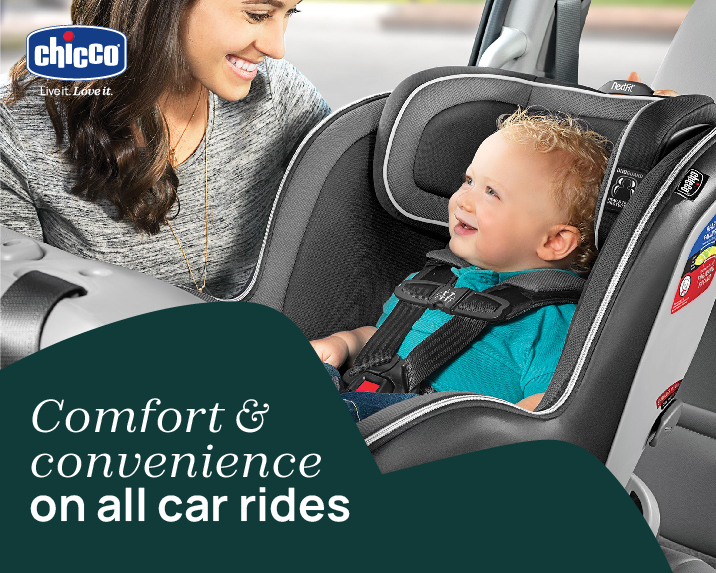Purchasing a baby car seat is one of the most important decisions parents can make for their child’s safety and comfort. With so many options on the market, it can be overwhelming to choose the right one. From safety features to ease of installation, there are several factors to consider. This checklist will guide you through everything you need to know when purchasing a baby car seat, ensuring you make an informed decision that suits your baby’s needs and your lifestyle.
1. Safety Standards and Certifications
The first and foremost consideration when purchasing a baby car seat is ensuring it meets current safety standards. Look for certifications from globally recognized safety organizations, such as:
- ECE R44/04 (European safety standard) or i-Size (R129), which is the latest standard.
- FMVSS 213 in the U.S.
- Check that the car seat has been tested for crash safety and side-impact protection.
A good car seat should have a five-point harness system, which secures your baby’s shoulders, hips, and crotch to prevent them from being ejected from the seat in case of an accident.
2. Car Seat Type
There are several types of car seats depending on the age, weight, and height of your child:
- Infant Car Seats: Designed for newborns and young babies, these rear-facing seats typically accommodate babies up to 13 kg. Rear-facing car seats provide the best protection for a baby’s head, neck, and spine.
- Convertible Car Seats: These can be used rear-facing for infants and then converted to forward-facing as your child grows, often accommodating children up to 18-30 kg.
- Booster Seats: For older children (15-36 kg), booster seats help position the seatbelt correctly across your child’s chest and lap.
Make sure to choose a car seat that suits your baby’s age and weight, and one that can adapt as your child grows.
3. Size and Fit
It’s important that the car seat fits both your baby and your vehicle. When shopping for a car seat, check the manufacturer’s guidelines on weight and height limits to ensure it will be comfortable for your baby. Measure the backseat of your car to confirm that the car seat will fit snugly without compromising comfort or safety for other passengers.
If possible, try installing the seat before purchasing to make sure it fits well and can be securely fastened. Some stores allow you to test the fit in your car before buying.
4. Ease of Installation
A car seat that’s difficult to install can result in mistakes that compromise your child’s safety. Look for car seats with easy-to-use installation systems such as:
- ISOFIX (International Standard for anchorage points in vehicles) or LATCH (Lower Anchors and Tethers for Children), which allow the seat to be attached directly to the car’s frame.
- Clear installation instructions and visual indicators that show if the seat has been properly installed.
Many car seats also feature a leveling base to ensure the correct recline angle for rear-facing seats. A seat that’s easy to install reduces the risk of improper use, which is one of the leading causes of car seat-related injuries.
5. Comfort and Adjustability
Your baby’s comfort during car rides is crucial, especially for long journeys. Look for car seats that provide:
- Adequate Padding: Seats with extra padding and cushioned headrests are ideal for newborns and small babies. Ensure the fabric is soft, breathable, and easy to clean.
- Reclining Options: A seat with multiple recline positions is essential for your child’s comfort as it allows you to adjust the seat according to their sleeping or sitting position.
- Adjustable Harness and Headrest: Look for seats that have an adjustable harness and headrest so the seat can grow with your child. Many modern car seats offer a no-rethread harness, which makes adjusting the harness height easier.
6. Portability
If you plan to use your car seat in multiple vehicles or frequently switch between car and stroller, consider a lightweight and portable option. Infant car seats are often designed to be easily detached from their base and attached to a stroller, making them a practical choice for busy parents on the go.
7. Durability and Material
A high-quality car seat should be built from durable materials that can withstand regular use and occasional spills. Look for seats with:
- Removable, washable covers to keep the seat clean and fresh.
- Durable frame and impact-absorbing materials for long-lasting use.
- Sun protection canopy if you’re living in hot climates.
Ensure that the materials used are breathable and won’t irritate your baby’s sensitive skin.
8. Side-Impact Protection
Babies are particularly vulnerable to side-impact crashes, so it’s crucial to choose a car seat with side-impact protection. Many car seats come with extra padding or reinforced walls that protect your baby’s head, neck, and torso in the event of a side collision.
9. Additional Features
Some car seats come with extra features designed to enhance convenience, safety, and comfort, such as:
- Built-in cup holders for toddlers.
- Sun shades for long journeys.
- Detachable infant inserts that can be removed as your baby grows.
- Storage pockets for holding essentials like wipes or toys.
10. Budget
While price shouldn’t be the only factor, it’s important to choose a car seat that fits within your budget without compromising on safety and quality. Higher-end models often offer additional features and enhanced safety, but there are plenty of affordable car seats that meet basic safety standards.
Conclusion
Choosing the right baby car seat requires careful consideration of safety features, comfort, and ease of installation. By following this checklist, you can confidently select a car seat that ensures your child’s safety and comfort while traveling. Remember, a high-quality, properly installed car seat is one of the most effective ways to protect your little one on the road.
